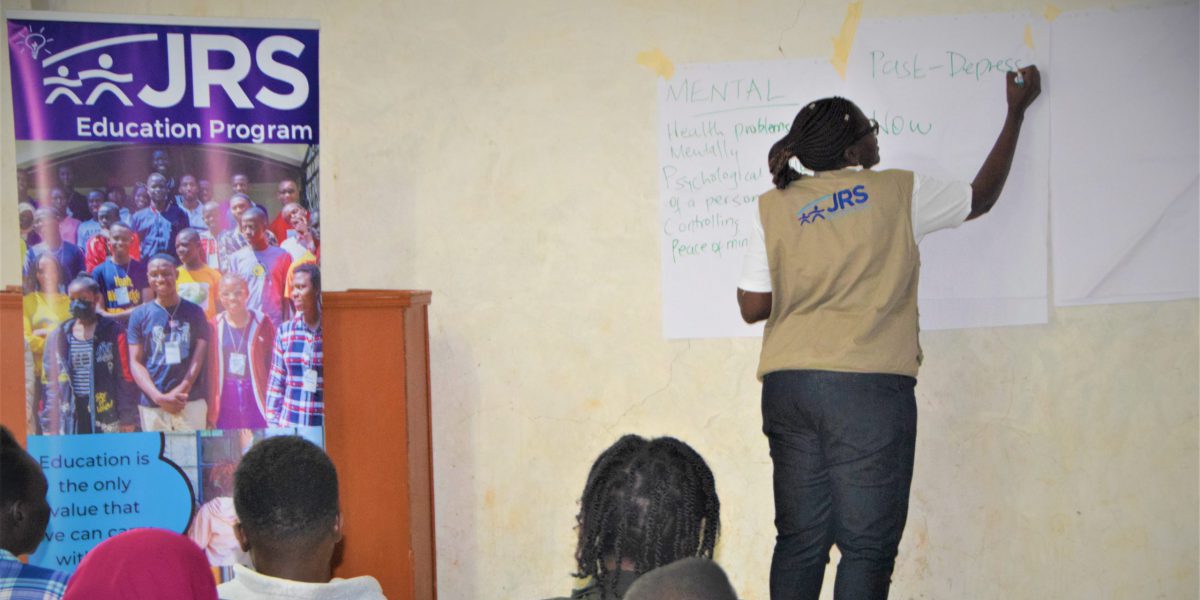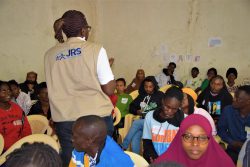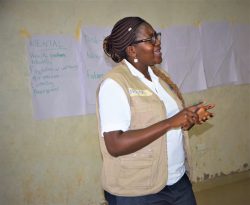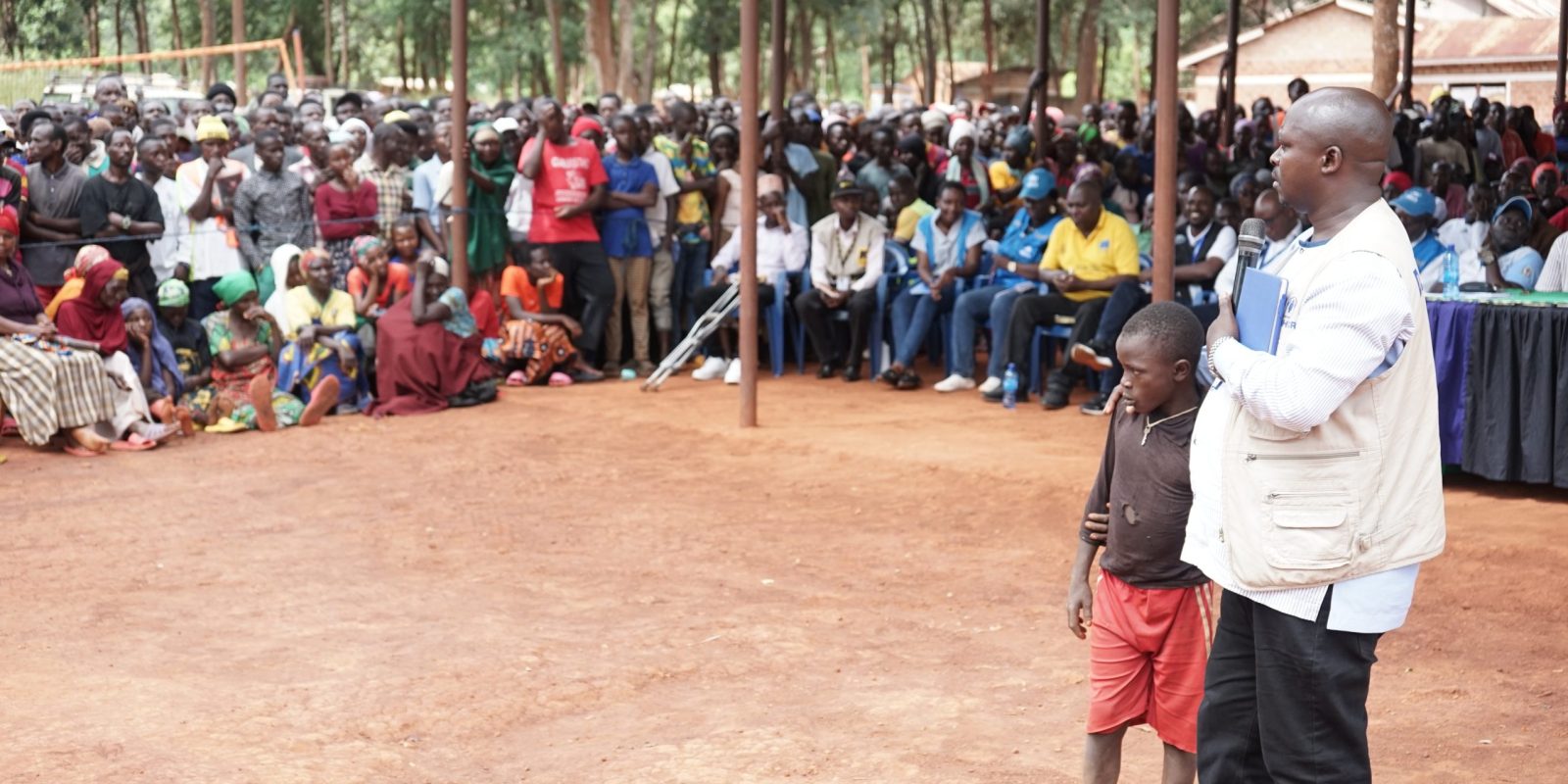Mental Health for Peace and Reconciliation
03 July 2023|Rozine Irabaruta and Jane Corazon

What is Peace? The most common answer would be the state where there is no war. However, this absence of war is not only a contextual lack of violence, but also an internal one: there is no peace without mental peace.
We want to introduce you to Jane Corazon, JRS worker and a Peace Artisan herself, who took the task of accompanying people to reach that peace: the internal peace. She accompanies refugee people in Nairobi, to cope with the horrible experiences they have had in their countries of origin, affecting their mental peace.
Read what she has to say about mental health as a peace guarantor:
The refugee communities often bear the heavy burden of conflict and displacement, experiencing profound trauma and upheaval. In these contexts, mental health plays a crucial and often overlooked role in contributing to peace and reconciliation efforts. By addressing the psychological well-being of individuals and the collective health of communities, mental health interventions can foster healing, rebuild relationships, empower individuals, and promote resilience. At Jesuit Refugee Service we undertake peace and reconciliation efforts to improve the mental health of clients and families within refugee communities.

One fundamental aspect of mental health’s contribution is its role in facilitating healing and trauma recovery. Refugees have often experienced unimaginable hardships, witnessing violence, and enduring forced displacement. Mental health support, including trauma-informed care, counseling, and therapy, provides individuals with a safe space to process their traumatic experiences, reduce distress, and rebuild their lives. By addressing psychological wounds, mental health interventions promote healing and create a foundation for reconciliation.
I, Jane Corazon, know that refugee communities face ongoing adversities and uncertainties. Mental health interventions enhance individuals’ resilience and equip them with coping strategies to navigate these challenges. By improving mental well-being and providing tools to manage stress, anxiety, and other mental health issues, individuals become better equipped to face the complexities of their circumstances and that is why I took up the responsibility to listen, advice hence trying to ease that situation in the lives of refugee’s.
 Mental health services within refugee communities also challenge the stigma and discrimination associated with mental health issues. By raising awareness, providing education, and promoting inclusivity, mental health interventions reduce the marginalization of individuals with mental health concerns. Addressing mental health-related stigmatization fosters a more inclusive and harmonious community environment, where individuals feel valued, supported, and included. This inclusive atmosphere is conducive to peacebuilding and reconciliation efforts.
Mental health services within refugee communities also challenge the stigma and discrimination associated with mental health issues. By raising awareness, providing education, and promoting inclusivity, mental health interventions reduce the marginalization of individuals with mental health concerns. Addressing mental health-related stigmatization fosters a more inclusive and harmonious community environment, where individuals feel valued, supported, and included. This inclusive atmosphere is conducive to peacebuilding and reconciliation efforts.
In the pursuit of peace and reconciliation, the role of mental health within refugee communities cannot be overstated. By addressing mental health needs, promoting healing and resilience, and empowering individuals, mental health interventions contribute to well-being, social integration, and peacebuilding within these communities.
Efforts to recognize and prioritize mental health within peace and reconciliation frameworks are crucial in creating sustainable and inclusive pathways to peace for refugees worldwide. As we continue to support and be ready to listen to the refugees especially when they share their experiences that keep affecting their mental health.
You can support our operations by making a small donation!



